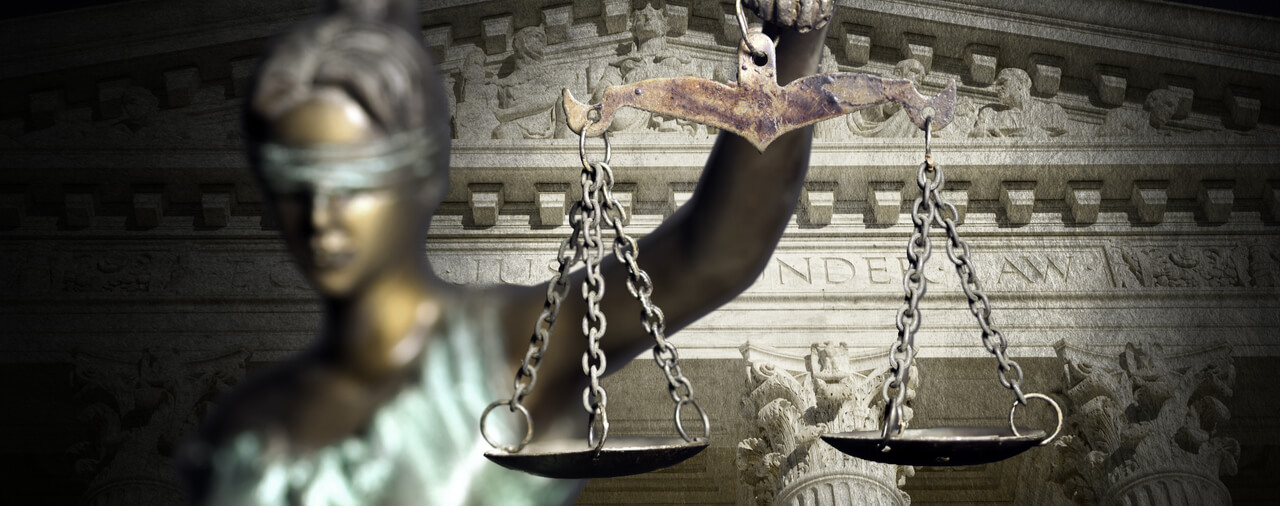On March 20, 2017, the Senate commenced confirmation hearings considering the nomination of Judge Neil M. Gorsuch to the Supreme Court of the United States. If confirmed, Judge Gorsuch will join the eight Justices currently sitting on the Supreme Court (listed in order of seniority):
Chief Justice John Roberts;
Associate Justice Anthony Kennedy;
Associate Justice Clarence Thomas;
Associate Justice Ruth Bader Ginsburg;
Associate Justice Stephen Breyer;
Associate Justice Samuel Alito;
Associate Justice Sonia Sotomayor; and
Associate Justice Elena Kagan.
The nomination of Judge Gorsuch to replace Justice Antonin Scalia is extremely important to the future of immigration law and American law in general. To understand some of the reasons, please see my posts on the legacy of Justice Scalia [see blog] and the record of Judge Gorsuch [see blog].
Poll Results
From March 7-9, C-Span polled Americans on several issues regarding the Supreme Court [PDF version]. I will explain why some of the results are troubling.
The polling showed that 82% of respondents stated that the issue of Supreme Court appointments was important to their decision on who to vote for in November’s presidential election. 86% of Democrats and 85% of Republicans stated that this was an important consideration.
Presumably, one would think that if the issue of Supreme Court appointments was an important or decisive factor in one’s decision on who to vote for in a presidential election, respondents would to some degree follow the workings of the Supreme Court. However, the C-Span poll indicates that the same set of respondents who apparently heavily weighed Supreme Court appointments in their voting decision may not in fact have known very much about the Supreme Court at all.
Only 43% of respondents were able to name even one of the eight currently sitting Supreme Court Justices. Only four Justices were named by more than 1% of respondents (Ginsburg 16%, Roberts 12%, Thomas 10%, and Sotomayor 3%). The distinguished Justice Stephen Breyer is impressively stealthy, having been recognized by 0% of survey respondents. To be sure, most Supreme Court Justices do not seek media attention. It is perhaps her tendency to give interviews that made Justice Ginsburg the most recognized in the survey. Furthermore, merely being able to name some or all of the Justices does not mean that an individual actually understands the function or work of the Supreme Court. However, it can be said that if an individual cannot name a single Supreme Court Justice, he or she likely does not really understand what the Supreme Court does or why it is important.
The numbers do not improve when we look at survey results addressing the nomination of Judge Gorsuch. 71% of respondents indicated that they are following the nomination. However, when asked if they could identify who President Trump had nominated, only 28% of respondents were able to name Judge Gorsuch. Being mostly unable to name Judge Gorsuch — or anyone actually on the Supreme Court — did little to dampen the survey respondents’ enthusiasm for providing an opinion as to whether he should be confirmed. 43% of respondents indicated that they support Judge Gorsuch’s nomination while 31% stated their opposition. Only 26% took the position that they did not know whether he should be confirmed or not. Logically, this means that many respondents to the survey have an opinion whether Judge Gorsuch should be confirmed to the Supreme Court without actually knowing who he is.
Some may be quick to blame the media or politicians for the apparent widespread public ignorance regarding the Supreme Court, but we should note that a majority of the survey respondents, 53%, took the position that they hear “[a]bout the right amount” about the workings of the Supreme Court. Perhaps this explains why 49% of respondents — note a higher percentage than the number who could name even one Justice or the name of the current nominee — either “strongly” agreed or disagreed (as opposed to “somewhat”) with the proposition that the Supreme Court should allow oral arguments to be televised.
Analysis
The point of discussing this survey is not to mock voters for being ignorant of all things involving the Supreme Court. Readers of my blog will be well aware that I am a Republican, but it is worth noting that the problem of ignorance about the Supreme Court afflicts Republicans, Democrats, and those unaffiliated with either party. As an immigration lawyer, I am required to understand how the federal judiciary works for a living. Conversely, as Ilya Somin has argued extensively at The Volokh Conspiracy blog, most people do not have such a direct incentive to become informed about law and politics considering the lack of effect that a single vote will have on an election.1
However, one thing I do find troubling about the survey results is the number of people who have very strong opinions on the Supreme Court without seeming to actually know even very basic information about the Court. It is one thing if a person does not know much about an issue and recognizes this fact. It is another issue entirely when a person is ill-informed about an issue but nevertheless professes strong opinions about it. It is good that people recognize that the Supreme Court is important. It is not good that people are making decisions without understanding why the Supreme Court is important, or even recognizing that they do not understand why it is important.
This concern is one of the main reasons we work hard here at myattorneyusa.com to offer readers detailed articles about immigration law. Additionally, it is why I often post about issues that are not directly related to immigration here on the blog [see category]. We work from the premise that many people want to be informed about important issues. However, given the lack of emphasis on teaching civics in schools, misrepresentation of important issues by elected officials and in the media, and the overwhelming complexity of American law and the contemporary administrative state, it is often difficult, if not impossible, for someone who is interested to know where to start in looking into an important issue. For this reason, we strive to provide readers with readable and comprehensive articles about important legal issues relating to immigration law. Furthermore, we always provide information about and links to the legal resources underlying our articles so laymen and lawyers alike can study the original documents. We believe that websites such as this one empower citizens to begin to understand the complicated issues that affect their lives. Regarding the Supreme Court, we have published several articles on Supreme Court decisions and oral arguments (see end of article for examples).
If you are interested in learning about important issues relating to our government, we encourage you to develop an understanding of civics through the United States Constitution. From a foundational understanding of the basic structure of our system of government, it is possible to delve deeper into the big issues facing us today. For this reason, I encourage readers to follow sites like ours that are written by experts in an accessible way and that refer readers to applicable laws, regulations, and court cases for further reference.
Selection of Articles on Supreme Court Cases and Issues
Article on jus soli (birthright citizenship) [see article; and see blog];
Article on section 212(f) authority to suspend immigration by proclamation [see article];
INS v. Rios-Pineda (authority to deny motions to reopen) [see article];
Leocal v. Ashcroft (aggravated felony crime of violence determinations) [see article];
Descamps v. United States (use of the categorical approach) [see article];
United States v. Windsor (Supreme Court decision striking down Defense of Marriage Act) [see blog];
Mellouli v. Lynch (limiting controlled substance deportability ground) [see article];
Directory of important Supreme Court articles from 2016 [see blog]; and
Beckles v. United States (void for vagueness doctrine and federal sentencing guidelines) [see blog]; and
Oral argument recaps in Sessions v. Morales-Santana (derivation of citizenship) [see blog] and Sessions v. Dimaya (crime of violence residual clause) [see blog].





